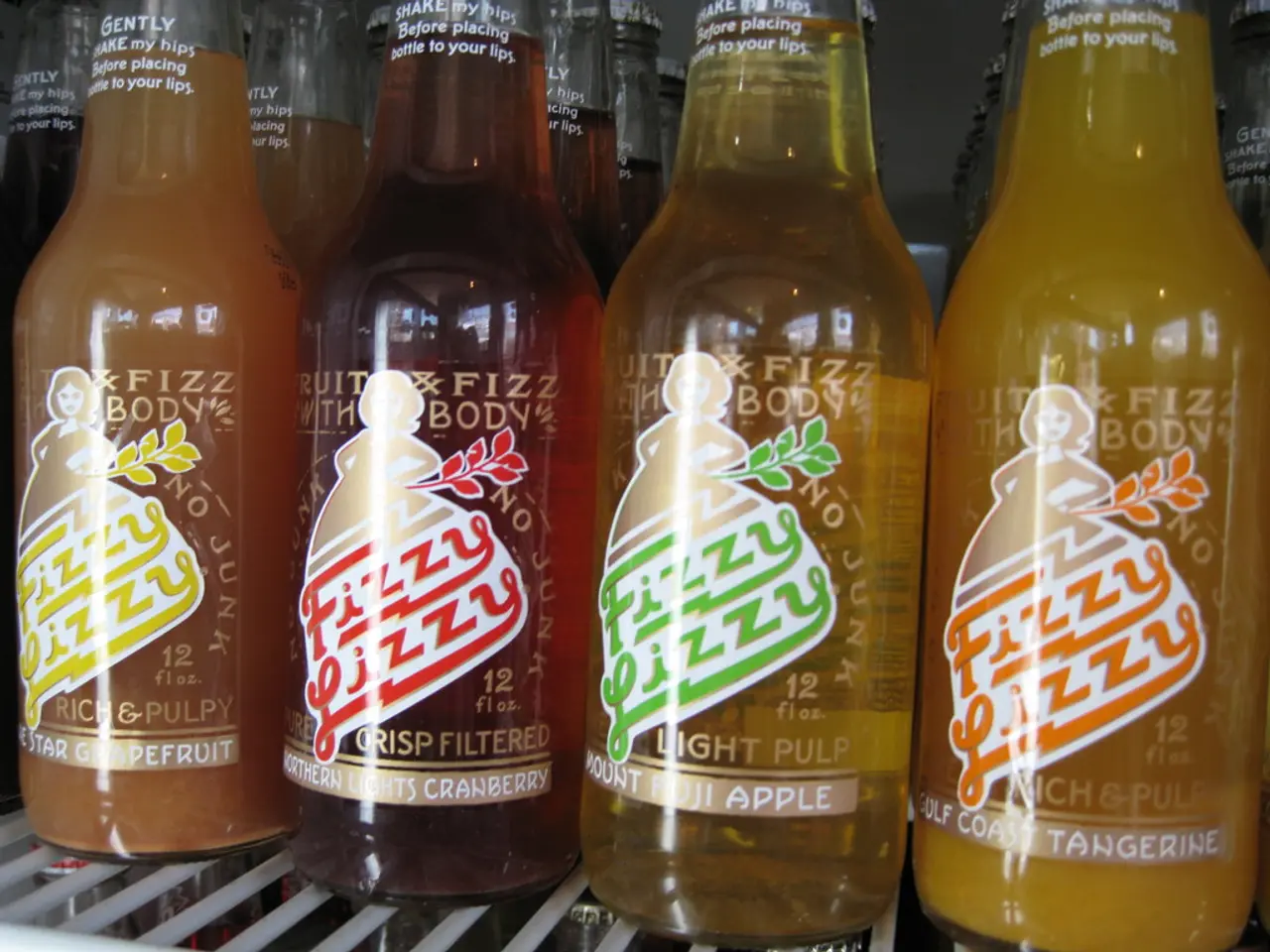Connection of Energy Beverages and Adolescent Mental Health Problems Examination
In recent years, studies have shed light on the potential risks associated with energy drink consumption in children and adolescents. While these studies do not establish a direct cause-and-effect relationship, they provide valuable insights into the potential dangers.
One of the primary concerns is the impact on mental health. Several studies have suggested a potential link between energy drink consumption and the development of mental health issues, such as increased aggression, elevated stress, symptoms of depression, anxiety, irritability, and jitteriness. These effects are believed to stem from the high caffeine content, which overstimulates the developing central nervous system.
Regular consumption of energy drinks has also been linked to attention problems and problematic behaviour in adolescents, according to a study conducted by the University of Miami.
Adequate sleep is essential for children's cognitive development and emotional well-being. However, caffeine can disrupt sleep patterns, leading to insomnia or poor-quality sleep in children. This lack of sleep can negatively impact their mood, memory, and overall mental health.
Parents can play a significant role in promoting healthier beverage choices for their children. They should limit access to energy drinks, monitor their children's consumption of caffeinated beverages, and encourage the consumption of water, milk, and natural fruit juices instead.
Educating children about the potential dangers of energy drinks is also crucial. By making them aware of the negative effects of excessive caffeine consumption on their mental and physical health, we can help safeguard their well-being.
Beyond mental health, excessive caffeine and high sugar content in energy drinks contribute to physiological problems such as elevated heart rate, hypertension, dehydration, and nutritional deficiencies due to displacement of healthier beverages. There are also concerns about unknown long-term effects from additives like amino acids and herbal stimulants.
To address these issues, regulatory bodies, parents, and educators can take several measures. Regulatory bodies need to implement stricter controls on marketing and sales of energy drinks to minors, as current regulations are weak and these products are sometimes labeled as supplements to evade oversight. Setting and enforcing limits on caffeine content per serving for youth-oriented products is crucial. Public health campaigns to raise awareness and promote nutritious options can have a positive impact.
In conclusion, a coordinated effort involving education, policy, and community engagement is essential to protect young people from the mental and physical harms associated with energy drink consumption. By taking proactive steps, we can help ensure a healthier future for our children.
[1] American Academy of Paediatrics. (2011). Caffeine: How much is too much? Pediatrics, 127(6), e1293-e1300. [2] American Heart Association. (2014). Energy drinks: What you don't know can hurt you. Circulation, 130(18 Suppl 2), S330-S335. [3] National Institute on Drug Abuse. (2016). Energy Drink Use: What Parents Should Know. [4] World Health Organization. (2016). Guidelines on the appropriate use of energy drinks: WHO Consultation, 26-28 October 2016, Geneva, Switzerland.
- The disruptive effect of caffeine on sleep, as seen in the study conducted by the American Academy of Pediatrics, can contribute to the development of mental health issues in children, such as mood problems and impaired memory.
- Science, as evidenced by research from organizations like the National Institute on Drug Abuse, suggests that excessive energy drink consumption can lead to long-term physiological problems like hypertension, dehydration, and nutritional deficiencies due to the displacement of healthier beverages.
- To prioritize health-and-wellness and mental-health in children, it is essential for parents, educators, and regulatory bodies to collaborate in implementing stricter controls on energy drink sales and marketing, promoting healthier beverage choices, and fostering education about the potential dangers of energy drink consumption.




